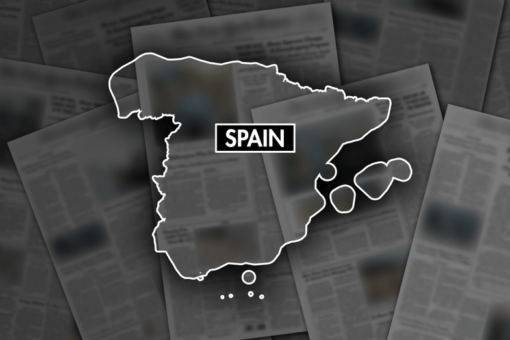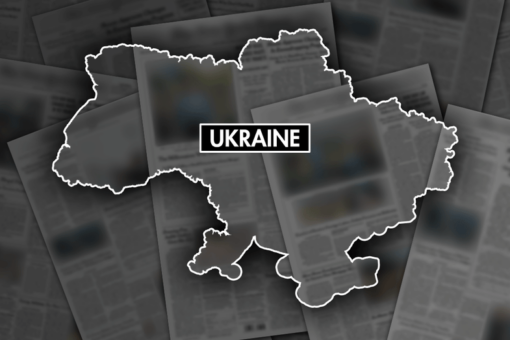NEWYou can now listen to Fox News articles!
Ukrainian and Russian citizens are depending on hotlines to gather information about loved ones during the war.
Ukraine’s National Information Bureau has a hotline for those hoping to get information about the deceased, missing or prisoners of war, according to President Volodymyr Zelenskyy’s website.
“This hotline is designed for the initial collection of information and communication with victims,” Ukrainian Deputy Prime Minister Iryna Vereshchuk said in a Friday statement. “The line will also function in messengers. I ask those who have questions and who want information about the dead, missing, prisoners of war, illegally detained by Russia, including civilians to call and we will help.”
RUSSIA INVADES UKRAINE: LIVE UPDATES
Aleksander, 41, presses his palms against the window as he says goodbye to his daughter Anna, 5, on a train to Lviv at the Kyiv station, Ukraine, Friday, March 4. 2022. (AP Photo/Emilio Morenatti)
Meanwhile, the Ukrainian Interior Ministry also reportedly established a channel on the messaging app Telegram, as well as a website, for Russian citizens to contact loved ones in Ukraine called Ishchi Svoikh, meaning “Look For Your Own,” according to Radio Free Europe (RFE), a U.S. nonprofit with a mission to report news that promotes democratic values “in countries where a free press is banned by the government or not fully established.”
Vadym Denysenko, adviser to Ukraine’s Interior Ministry, said Russia has been unresponsive regarding questions about Russian soldiers’ remains, according to REF.
Firefighters evacuate an elderly woman from an apartment building hit by shelling in Kyiv, Ukraine
(Ukrainian State Emergency Service via AP)
“For that reason, we have been forced to appeal to you, citizens of Russia, so that you can find those who were killed on our territory — and killed because he illegally crossed our border based on an illegal and despicable order by your president,” Denysenko said in a video posted to YouTube, according to a translation.
He added that Russian authorities have taken away soldiers’ relatives’ phones.
“They do not have the opportunity to contact you, and you have no idea what happened to your relatives,” Denysenko said. “In this regard, the website 200rf.com was created [by] the Ministry of Internal Affairs of Ukraine. On this site, we post photos and videos of the dead so that they can be identified. We post documents of the dead and those who were taken prisoner.”
In an article for The Wilson Center policy forum, Victor Andrusiv, a Ukrainian political and civic activist, noted that while some critics say the website violates the Geneva Conventions, it “fulfilled an exclusively humanitarian function.”
Russian President Vladimir Putin listens to St. Petersburg’s governor Alexander Beglov during their meeting in the Kremlin in Moscow, Russia, Tuesday, March 1, 2022
“On February 27, we in the Ministry of Internal Affairs tried to contact Russian commanders to exchange captives and transfer the bodies of fallen soldiers,” Andrusiv, who helped author the program, wrote. “We were shocked to learn they did not feel they needed their POWs back, as they hoped to complete their operation in a few days. However, as the days passed, the number of captives grew geometrically. An additional factor in this situation was that the Russian soldiers were completely deprived of mobile phones and could not inform their relatives about their situation.”
Since Russian soldiers’ names were not known, and they had no way to contact friends or relatives, officials “decided to publish photos and video materials from which they could perhaps be recognized by their relatives,” Andrusiv explained.
CLICK HERE TO GET THE FOX NEWS APP
Roskomnadzor, Russia’s technology and communications supervision agency, blocked the Ukrainian Interior Ministry’s website for fallen Russian soldiers immediately after it was published.
The Telegram channel, meanwhile, “has 700,000 subscribers, 90 percent of them from Russia,” Andrusiv wrote. “We have received more than 12,000 requests from Russian families since the channel became operational and have provided information on 217 POWs and fallen troops to their relatives. Also, we have contacted other relatives whom we were able to identify through social media.”




